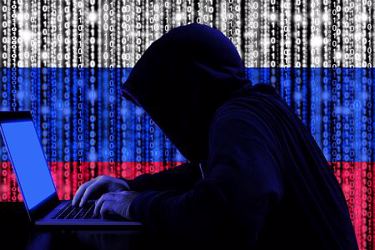With Russia Targeting West, U.S. Water Systems On High Alert


With a geopolitical crisis playing out thousands of miles away, the drinking water sector in the U.S. has doubled its resolve against potential attacks against their digital systems.
“Today water utilities across the country are girding for online attacks and misinformation campaigns that could lead to drinking water contamination, service disruptions and demands for ransom,” according to E&E News. “Top White House officials warned U.S. companies to brace for possible cyberattacks — specifically mentioning the water sector — and cited hackers disrupting Ukraine targets.”
Despite the fact that, by the time of this writing, no major cyberattack against U.S. water systems has been traced to Russian actors, the sector certainly has cause for concern. In recent months, drinking water and wastewater systems across the country have been attacked. The onslaught prompted the Biden administration to announce a new security plan for this critical infrastructure last month.
Though the world’s attention is focused on Russian troops invading Ukraine, some security experts fear that the conflict could draw in the countries’ allies, with Russia potentially targeting the U.S. And one of the most damaging actions it could take would be to target the U.S.’s water systems.
“In 2012, Leon Panetta, then Barack Obama’s defense secretary, warned of a ‘cyber-Pearl Harbor’ in which an enemy would use cyberattack to derail passenger trains, contaminate the water supply or shut down parts of the power grid,” Politico reported. “Nearly a decade since that warning, the first few days of Russia’s invasion of Ukraine has brought a wave of cyberattacks and website disruptions that — while falling far short of disabling infrastructure — are already exposing how deep the vulnerabilities run.”
As tensions between Russia and the U.S. rise, and the threat of cyberattacks against water and wastewater infrastructure from all directions increases, the country’s water systems must remain on guard.
“It’s critical that water utilities be vigilant and use strong and unique passwords and multifactor authentication to prevent access by third parties,” per E&E News. “They should be able to operate manually and should follow best practices, including bringing on surge support to get up and running after an attack. And while there are no known instances of Russian hackers penetrating U.S. water systems… the simple threat or presence of hackers can interrupt operations.”
To read more about how drinking water and wastewater systems protect themselves against hackers, visit Water Online’s Resiliency Solutions Center.
